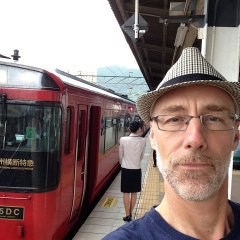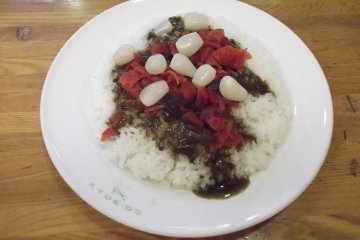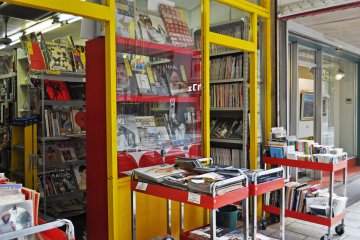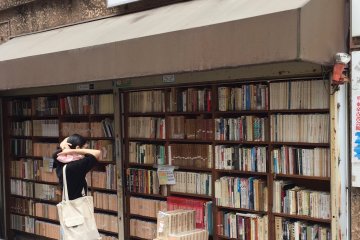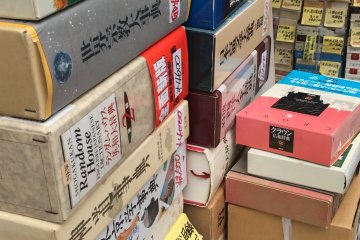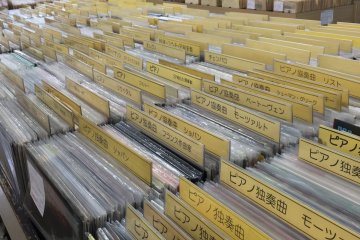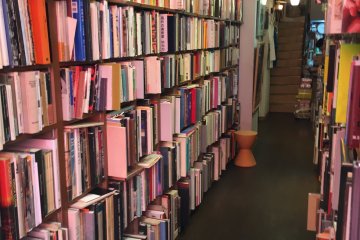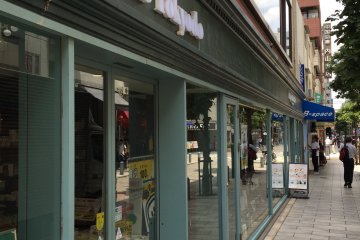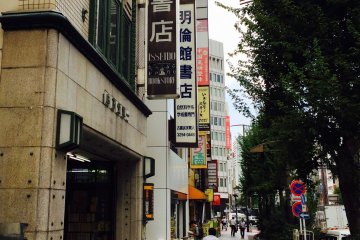Many years ago, when I took my first job in Tokyo at the publishing house of Graphic-sha, in Kudan-kita, I discovered a place that I would wander through during my lunch hours, on free weekends, and at any opportunity I’ve had in the following thirty-five years of my life. That place is Jimbocho, along nearby Yasukuni Boulevard, and it is home to one of the world’s great agglutinations of second-hand bookstores.
A passion for books
In case you weren’t aware, the Japanese love the printed word. Gutenberg may have invented the moveable type, but the Japanese invented the phonebook-thick manga comic book, and that’s just a peculiar example of their capacity to devise, produce and consume any and all types of printed matter. Equally important, they are one of the great collector cultures of the world. Their monomania includes an obsession with books, in both Japanese and the better-known Western languages.
A haven for the printed word
While we can surely bewail the iPhone and its ilk for destroying humanity’s ability to turn and read pages of bound text, there’s still some hope for the venerable book. Like a refugee camp from the war on literacy, Jimbocho is a haven where the printed word has taken shelter. From art collections and historical tomes to old glossy magazines, specialized dictionaries, children’s books and those classic novels you crave to reread, they’re all likely to be found somewhere in this haphazard paradise of printed matter.
Possibly the world's biggest
The Jimbocho tagline claims that it is the world’s biggest shopping town for books. I’ve never been to Timbuktu, but I’m inclined to accept this claim as fact. Since there are literally hundreds of small and large booksellers here, the neighborhood even offers its own information center. This is located on Suzuran-dori, the street parallel to the boulevard, just behind Kitaguchi Bookstore. Seek it out with your questions about where to go for what. You’ll be handed a map of all the local bookstores, and the clerk will circle the places to try first.
More than just books
This district also offers a plethora of shops where one can buy genuine ukiyo-e (traditional woodblock prints) and Japanese art, and a few used record stores, too, including Fuji Records (located on the ninth floor of the Kanda Kosho Center, a few doors up from Kitazawa Bookstore) which is equipped with turntables that spin any speed of vinyl, even their old 78s. For those with a thirst for modern bookstore amenities, there is Tokyodo (also on Suzuran-dori) which offers a coffee bar and tables where you can sit and read.
It's not just for buyers
Then again, if someone just doesn’t believe in owning anything as unwieldy as a book (perhaps because he imagines that the entirety of human knowledge has already been uploaded to the internet) he can haul his dead Japanese grandpa’s boxed-up library here to sell. The book dealers will give him fair value. (So please don’t leave those books piled up in the garage; the termites always eat the best ones first.)
Give yourself time
For the bibliophile prospecting for something obscure a few trips to Jimbocho might be required. Even with the map – which as far as I know is only printed in Japanese – there’s no way of knowing exactly where that gem you seek is hidden. The careworn fellow at the back of any store can usually point you in the right direction, so try asking. Otherwise, explore the stacks, climb the narrow stairwells, and ride the creeky elevators up and down until you chance upon it, and Archimedes whispers in your ear – Eureka!


